Biden’s Sweeping Caregiving Plan Has Overwhelming, Bipartisan Support
The COVID-19 pandemic and resulting financial crisis have exposed the fragility and gaps within the American caregiving model.
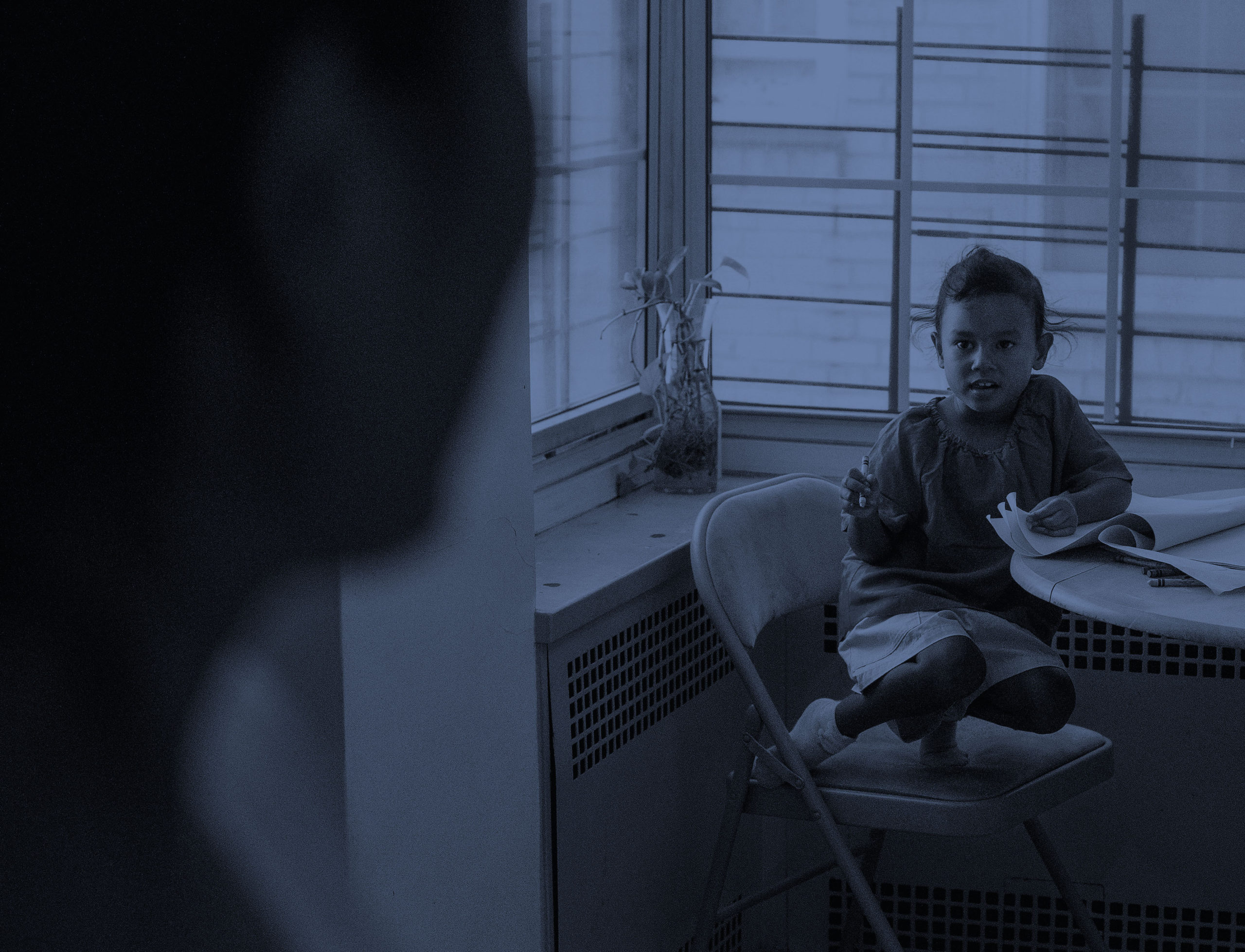
The COVID-19 pandemic and resulting financial crisis have exposed the fragility and gaps within the American caregiving model. Individuals in elder care facilities have been especially susceptible to the coronavirus. Working families are coping with children at home, managing care and school while parents try to work remotely. Essential workers who cannot work from home struggle to find safe, affordable childcare options. Programs and centers are losing revenue from decreased enrollment and the addition of more extensive cleaning and safety procedures. And professional caregivers and early childhood educators, already among the country’s lowest-paid workers, have had to give up their jobs or continue to work without adequate pay or benefits to manage the health risks they encounter.
In fact, the country’s caregiving systems have been broken and inadequate for a long time. For decades, quality childcare has been prohibitively expensive for families, driving many parents out of the workforce. Childcare programs are also costly to run, with early childcare workers, primarily women, often receiving poverty-level wages and few or no benefits. Other families must cope with the emotional and financial burden of caring for aging relatives or adults with disabilities or chronic illness. While this crisis has long been neglected by policymakers and health systems, President Joe Biden has proposed a robust plan to give families more options for quality, affordable, and home-based care, and to create an adequately-compensated professional workforce of caregivers.
Polling from Data for Progress and the Lab, a policy vertical of The Appeal, shows broad bipartisan support for key elements of Biden’s proposal.
- 66% of likely voters, including 87% of Democrats, 64% of independents, and 47% of Republicans, support free preschool for 3- and 4-year olds.
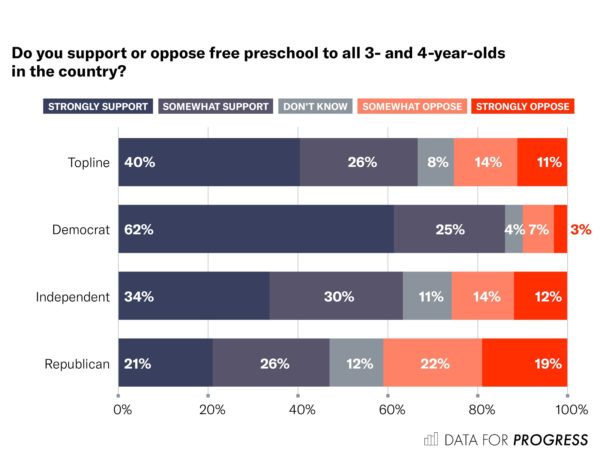
- 66% of likely voters, including 79% of Democrats, 65% of independents, and 53% of Republicans, support a system of tax credits and subsidies so that families earning less than 1.5 times their state’s median income would pay no more than 7% of their income for care for children under the age of 3, with the families most in need paying nothing.
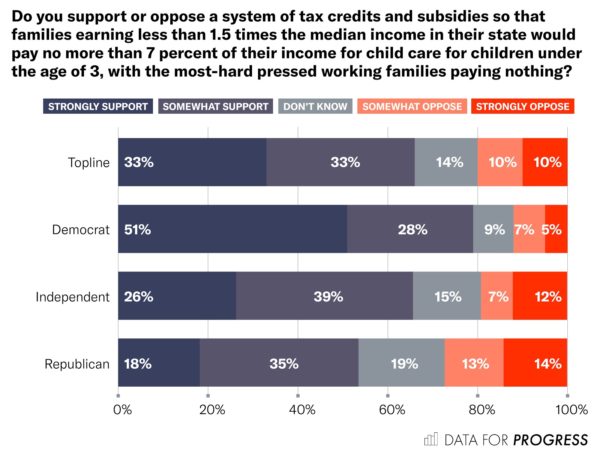
- 71% of likely voters, including 79% of Democrats, 73% of independents, and 62% of Republicans, support tax credits to encourage employers to provide onsite childcare facilities.

- 62% of likely voters, including 78% of Democrats, 58% of independents, and 47% of Republicans, support raising pay for childcare workers to the level of elementary school teacher pay.
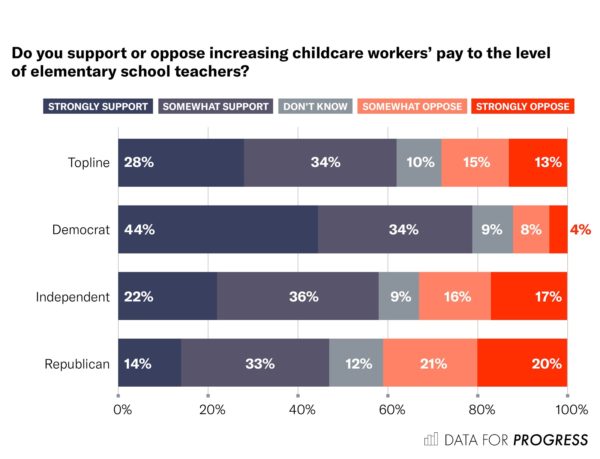
- 75% of likely voters, including 87% of Democrats, 70% of independents, and 66% of Republicans, support providing childcare workers with health insurance, paid sick leave, and affordable care for their own children.
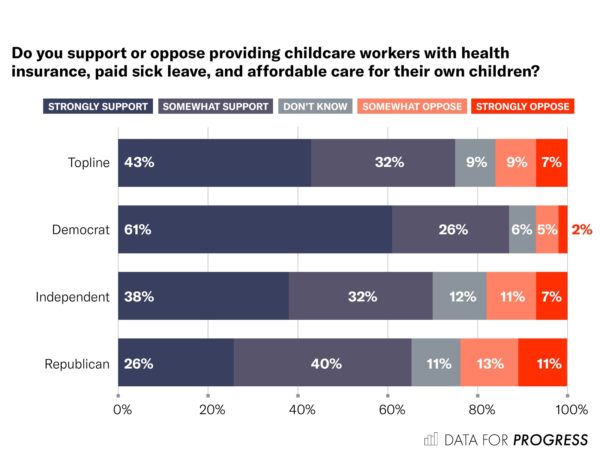
- 72% of likely voters, including 83% of Democrats, 68% of independents, and 62% of Republicans, support protecting childcare workers’ rights to bargain for better pay and working conditions.
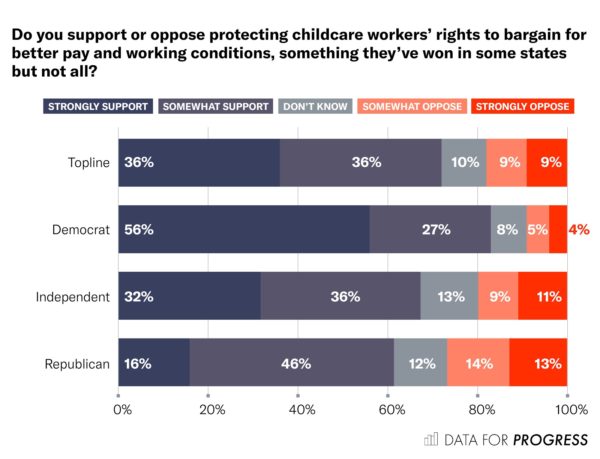
- 69% of likely voters, including 82% of Democrats, 65% of independents, and 45% of Republicans, support creating child care development grant subsidies to increase the number of school-age children in low- and middle-income families who can benefit from afterschool, weekend, and summer programs.
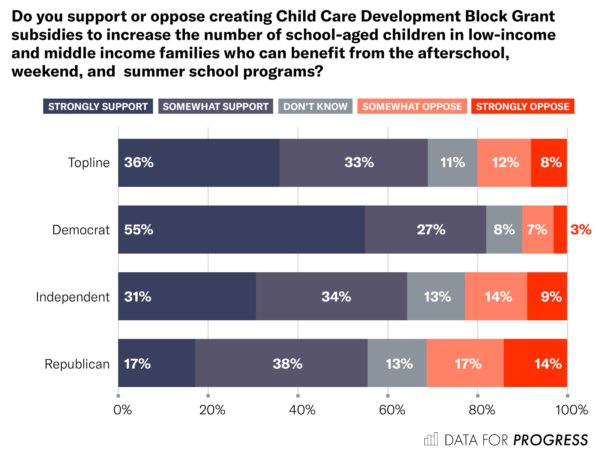
- 65% of likely voters, including 80% of Democrats, 64% of independents, and 51% of Republicans, support federal help to eliminate the current waitlist of around 800,000 people for home and community services under Medicaid.
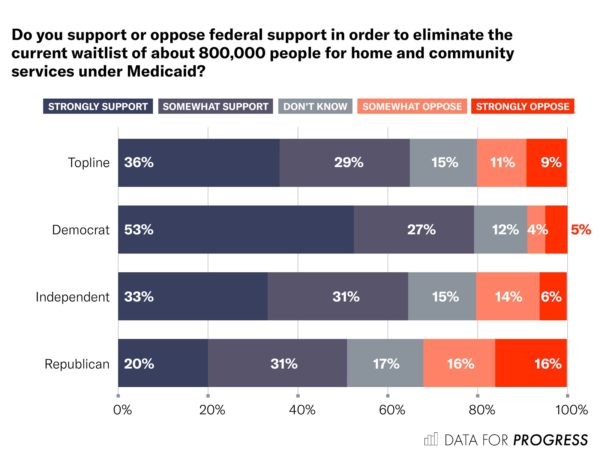
- 72% of likely voters, including 83% of Democrats, 73% of independents,
and 58% of Republicans, support establishing a long-term services and support innovation fund to help expand home- and community-based alternatives to institutional care.
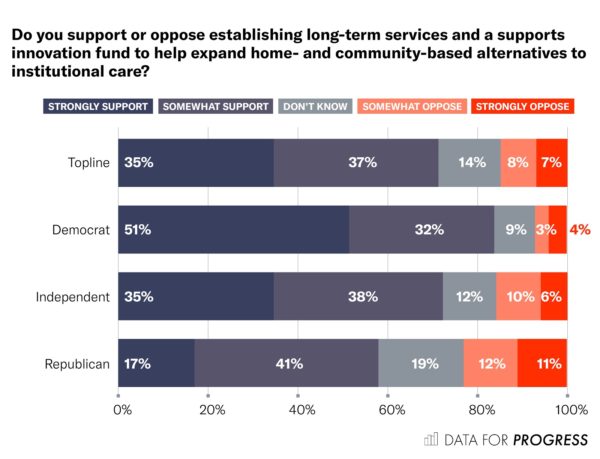
- 69% of likely voters, including 85% of Democrats, 65% of independents, and 53% of Republicans, support adding 150,000 community health workers.
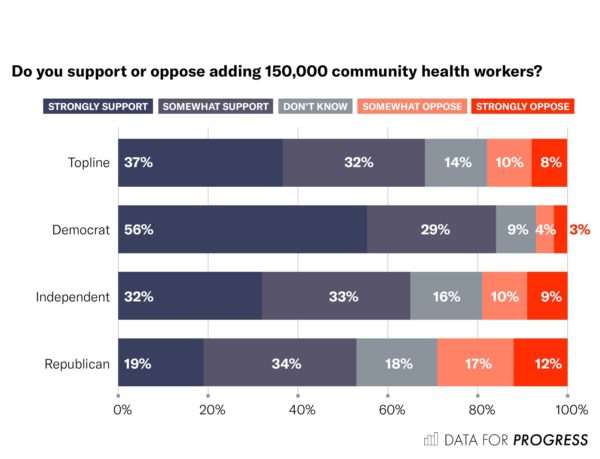
- 68% of likely voters, including 82% of Democrats, 64% of independents, and 45% of Republicans, support training 35,000 workers to provide critical support to address the opioid epidemic and substance use disorders.
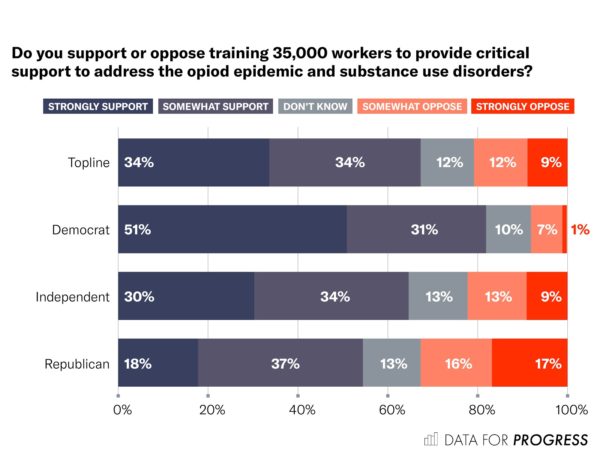
- 79% of likely voters, including 88% of Democrats, 81% of independents, and 71% of Republicans, support creating tens of thousands of jobs providing care to veterans by filling occupational shortages and vacant positions at VA care facilities.
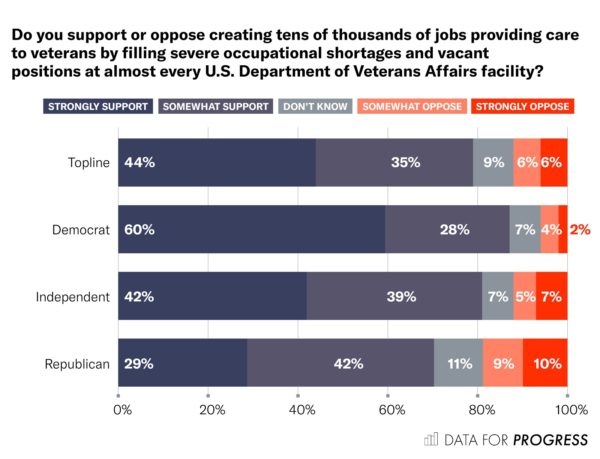
Polling Methodology
From December 19 to December 21, 2020, Data for Progress conducted a survey of 1104 likely voters nationally using web panel respondents. The sample was weighted to be representative of likely voters by age, gender, education, race, and voting history. The survey was conducted in English. The margin of error is ±2.9 percentage points.

